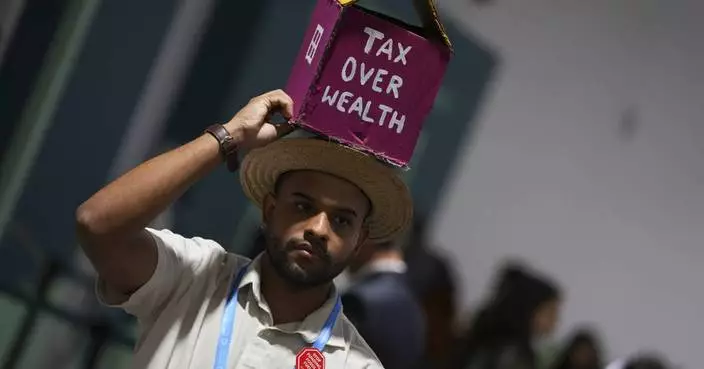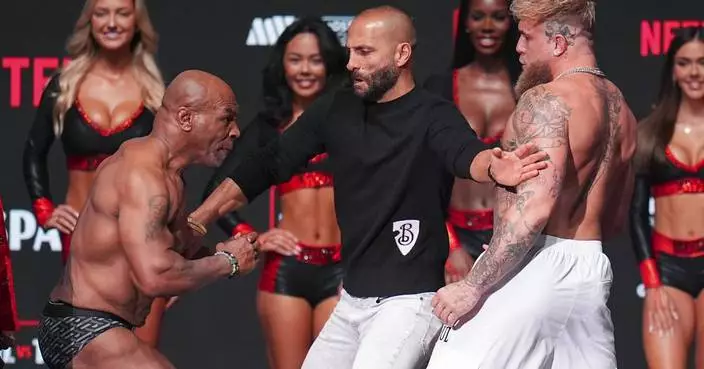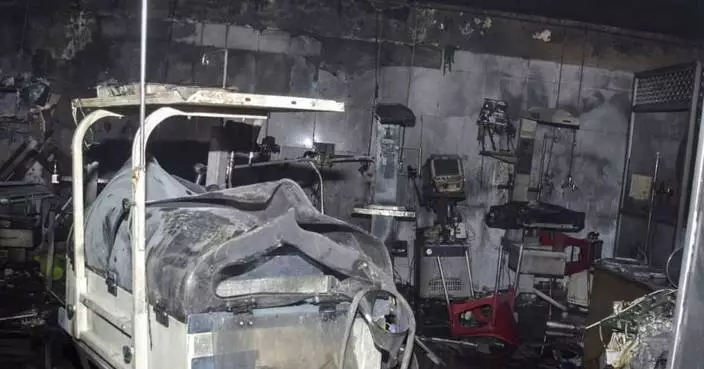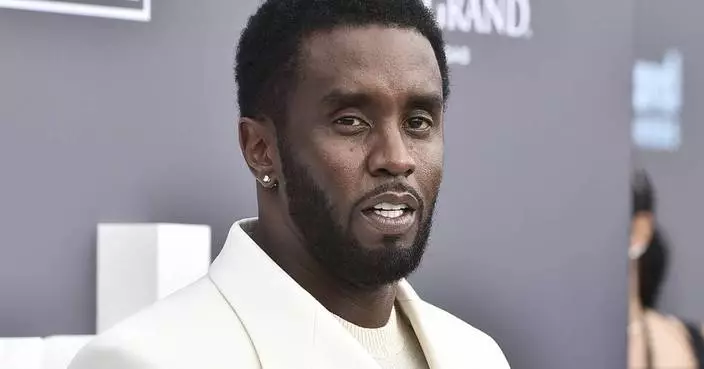Kudos to the planner of Australia's rugby tour of Britain and Ireland.
Wales in Cardiff on Sunday is a timely second match. Far better than Scotland and Ireland who follow.
Wales is vulnerable and its confidence fragile after tying its worst losing run last weekend — 10 straight tests — when it fell to Fiji 24-19 at home for the first time.
The fear of more unwanted history, an 11th straight loss and the prospect of going the whole year without a win for the first time in 87 years, weighs heavy on the team and staff.
Meanwhile, Australia has used the opportunity to take a breather after the high of upsetting England 42-37 at Twickenham last weekend.
Knowing what's still ahead on tour, the Wallabies have undergone eight changes, two of them positional. They were more than coach Joe Schmidt intended but his hand was also forced by injuries that made winger Dylan Pietsch return home and sidelined captain Harry Wilson and prop Taniela Tupou from the Wales game.
Joseph Sua'ali'i, who made such a stunning debut against England, also was dropped to the reserves. Sua'ali'i will surely come off the bench, as Australia have few games left to get him up to speed in test rugby before the British and Irish Lions arrive in July.
“Anyone who plays all consecutive tests against the sort of countries that we're up against here, I do think that's a big challenge, and particularly playing the full 80 minutes,” Schmidt says. “So for him to just be able to take a breath and watch a bit of the game and then enter the game, I think he's a great opportunity for us to change it up a bit, if required.”
Thirty-somethings Allan Alaalatoa, the stand-in captain, lock Will Skelton, scrumhalf Nic White and inside center Samu Kerevi are back in the starting lineup.
Kerevi and Rob Valetini, shifted to No. 8, will play their 50th tests.
Queensland flanker Seru Uru earns his first start in his second test and Max Jorgensen, who scored the winning try against England, starts in place of Pietsch.
“I'm concerned, and I'm hopefully confident in that I know the guys coming in will be fully committed to doing the job and connecting with the guys who did the job last week,” Schmidt says.
Losing Tomos Williams, the form scrumhalf in the English Premiership, to a shoulder injury from the Fiji defeat has left Wales with an even less experienced backline. Flyhalf Gareth Anscombe's 38 caps are more than the rest of the backs combined. Ellis Bevan starts in 9 in his fifth test, with backup from Rhodri Williams, who last played for Wales 10 years ago.
Wales also turning over Fiji only five times made Gatland change his flankers to Jac Morgan, the World Cup captain, and James Botham.
Criticism of Gatland has come and thick and fast from his former players this week, but he is used to it and staying the course to rebuild Wales.
“I've been very clear that we're comfortable with the decisions we've made,” Gatland says. “I didn't think there'd be this much pain. We haven't been able to get over the finishing line. We need to be able to do that. If a decision is made (about firing me), I'm more than comfortable with that. I'll probably go to the beach and enjoy myself away from the pressure. But I'm really happy with these players. I had a good meeting with the leadership group this week.”
The Wallabies are responsible for loss Nos. 8 and 9 in the Wales streak — when Wales visited in July — and they won their last meeting in Cardiff only two years ago. Australia came from 21 points down with 23 minutes to go to win 39-34.
Both coaches were fired afterward: Wayne Pivac for winning five of 14 Wales tests that year, and Dave Rennie, a decision which Australian officials came to regret during the World Cup.
AP rugby: https://apnews.com/hub/rugby

Wales' Ellis Bevan scores his side's second try during the Autumn international match rugby match between Wales and Fiji at Principality Stadium, Cardiff, Wales, Sunday Nov. 10, 2024. (David Davies/PA via AP)

Australia head coach Joe Schmidt looks on during a team run at The Lensbury Resort, Teddington, England, Friday Nov. 8, 2024. (Zac Goodwin/PA via AP)

Australia's Rob Valetini, centre, is tackled by England's George Martin, left, and his teammate George Martin during the Autumn Nations series rugby union match between England and Australia, at Twickenham stadium, London Saturday, Nov. 9, 2024. (AP Photo/Ian Walton)

Wales' Taine Plumtree and team-mates react after during the Autumn international match rugby match between Wales and Fiji at Principality Stadium, Cardiff, Wales, Sunday Nov. 10, 2024. (David Davies/PA via AP)
BOGOTA, Colombia (AP) — Colombia's fiery left-wing President Gustavo Petro is one of the biggest opponents of fossil fuels on the world stage today, with speeches that lump oil and coal with cocaine as his country's “three poisons.” He's set a goal of weaning Colombia off those fossil fuels, putting the green energy transition and environmental protection at the center of his agenda.
His opposition is long-held, but it's also practical. Colombia's oil reserves are projected to last only about seven years, and without new discoveries, the country will eventually have to find a way forward without the oil and coal that make up more than half its exports.
But doing so will require overcoming the same challenges that many smaller nations face with the energy transition: higher borrowing costs that more developed nations face, Environment Minister Susana Muhamad said.
Muhamad has been highlighting Colombia's challenge at the United Nations climate talks in Azerbaijan, where the major goal of this year's talks known as COP29 is establishing just how much wealthy nations will contribute to the developing world to cope with climate change and transform their energy systems.
At a press conference on the sidelines of the climate talks Saturday, Muhamad said the world “cannot continue to play with the same financial rules that leave developing countries behind.”
Muhamad also touted her country's support for a non-proliferation treaty for fossil fuels. The treaty, modeled on others like a non-nuclear proliferation treaty, is aimed at ending the expansion of new coal, oil and gas projects, and manage a global transition away from fossil fuels.
“Oil is not a gift from god,” Muhamad told The Associated Press on the sidelines of COP29, referring to a comment made by Azerbaijan’s president Ilham Aliyev earlier in the talks. “It’s a trap. We need to untangle ourselves from that.”
“We’re trying to look for a path that actually helps us to be more resilient, be more competitive in a new era of economics where climate and people are at the center, so we can create a different economy,” she said. “But we are not finding a positive response towards this path.”
Developing economies face higher costs for renewable energy and sustainable projects due in part to perceived risks for investors, according to the World Economic Forum, which says significant international investment is necessary for the energy transition.
Muhamad said, like many developing nations, Colombia faces “unfair conditions” in accessing capital.
Petro, a former guerrilla with the M-19 Marxist group in his youth, is a longstanding critic of what he calls the “greedy” extractive sector. He has stopped approval of new oil drilling contracts, has banned fracking and pushed through some of the first offshore wind power projects in Latin America since taking office in 2022.
But his mission to leave fossil fuels behind has faced criticism.
Tomas Gonzalez, a former Colombia energy minister from the Conservative Party who now directs the Bogota-based Regional Center for Energy Studies, called Petro's approach "very radical".
“As long as there is demand someone will meet it, so restricting Colombian production doesn’t reduce emissions globally," Gonzalez said. “But for Colombia, it means major sacrifices in fiscal revenue and funding for public spending."
Oil and coal are key to Colombia’s national revenue, according to government data, accounting for about 8% of GDP and over 50% of its exports. It's the world's sixth-largest exporter of coal, according to the national mining agency, and a top-20 exporter of crude. But its oil reserves are considered small, at around seven years, according to the country’s oil regulator, ANH.
“We don't have huge reserves,” Muhamad said. "We are not like other countries which could have 200 years of oil under the soil. So as the world decarbonizes, our markets will be closing and we need a replacement.”
Colombia may have more oil and gas, but Petro’s administration has stopped issuing new oil and gas exploration contracts. Gonzalez called that “the opposite direction of what we need.”
Colombia launched a new investment portfolio at the end of September for its climate adaptation plans, which it hopes will attract around $40 billion to help fund ecotourism, a fair energy transition and conservation and restoration of ecosystems.
“Colombia is doing the right thing in a way by saying we need to move away from fossil fuels,” said Bill Hare, a climate scientist and chief executive of Climate Analytics, a science and policy group that supports action on climate change.
“They’re doing it for a combination of different reasons, some of them economic, some basically completely moral and oriented around the climate crisis. What is really bad that’s happening is that they’re not being backed up by the international financial community.”
Hare said the whole ecosystem of the international financial community is not backing Colombia up.
“They’re going with the fossil fuel industry. So Colombia is facing a downgrade economically because of that,” he said. “It will need backing. It may not be hard cash, but it could be debt guarantees. It can be all sorts of things like that that ultimately don’t cost a lot that make all the difference.”
For Gonzalez, when it comes to the energy transition, there are serious gaps between the ambitions Petro has set and the policies in place.
“Colombia needs to expand its clean energy supply and improve energy efficiency at a scale and speed far greater than what we’re currently achieving,” he said. “When you want to be a global leader the disconnect between goals and policy actions in this area remains a major challenge.”
Arasu reported from Baku, Azerbaijan. Associated Press writer Seth Borenstein contributed from Baku.
The Associated Press’ climate and environmental coverage receives financial support from multiple private foundations. AP is solely responsible for all content. Find AP’s standards for working with philanthropies, a list of supporters and funded coverage areas at AP.org.
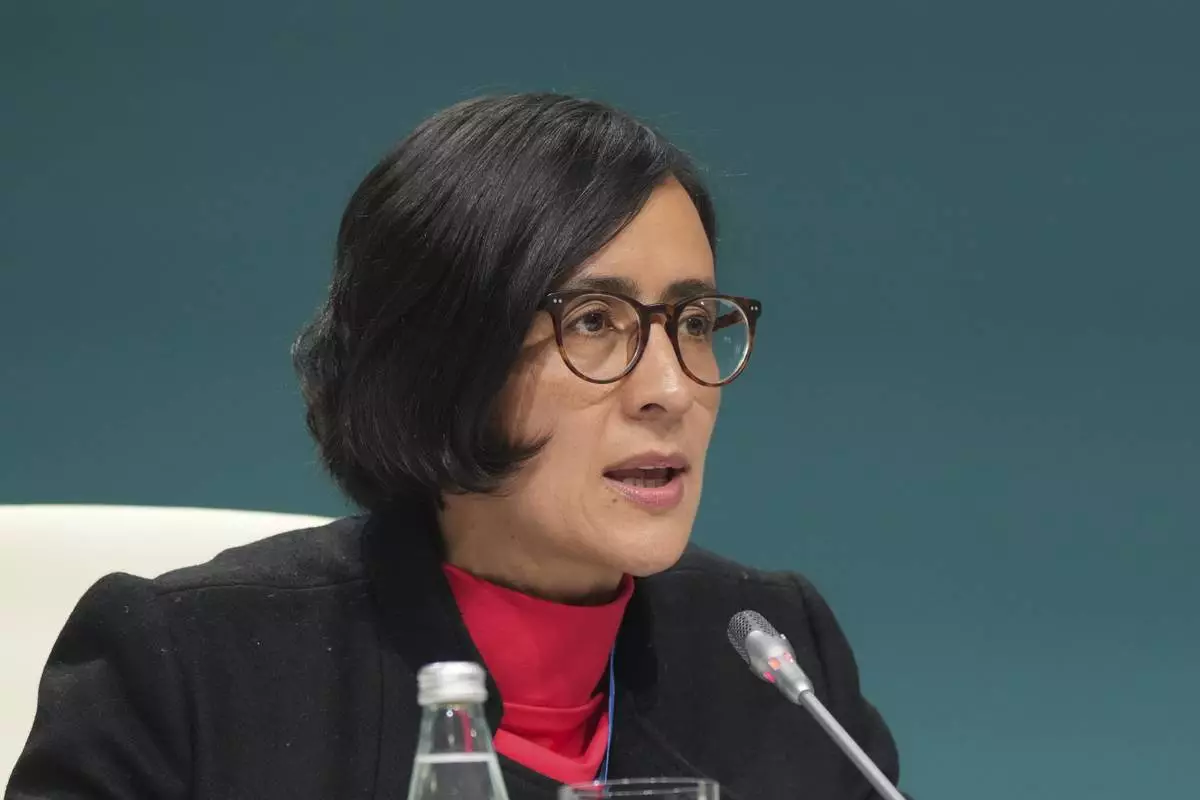
Susana Muhamad, environment minister of Colombia, speaks during a session at the COP29 U.N. Climate Summit, Saturday, Nov. 16, 2024, in Baku, Azerbaijan. (AP Photo/Sergei Grits)
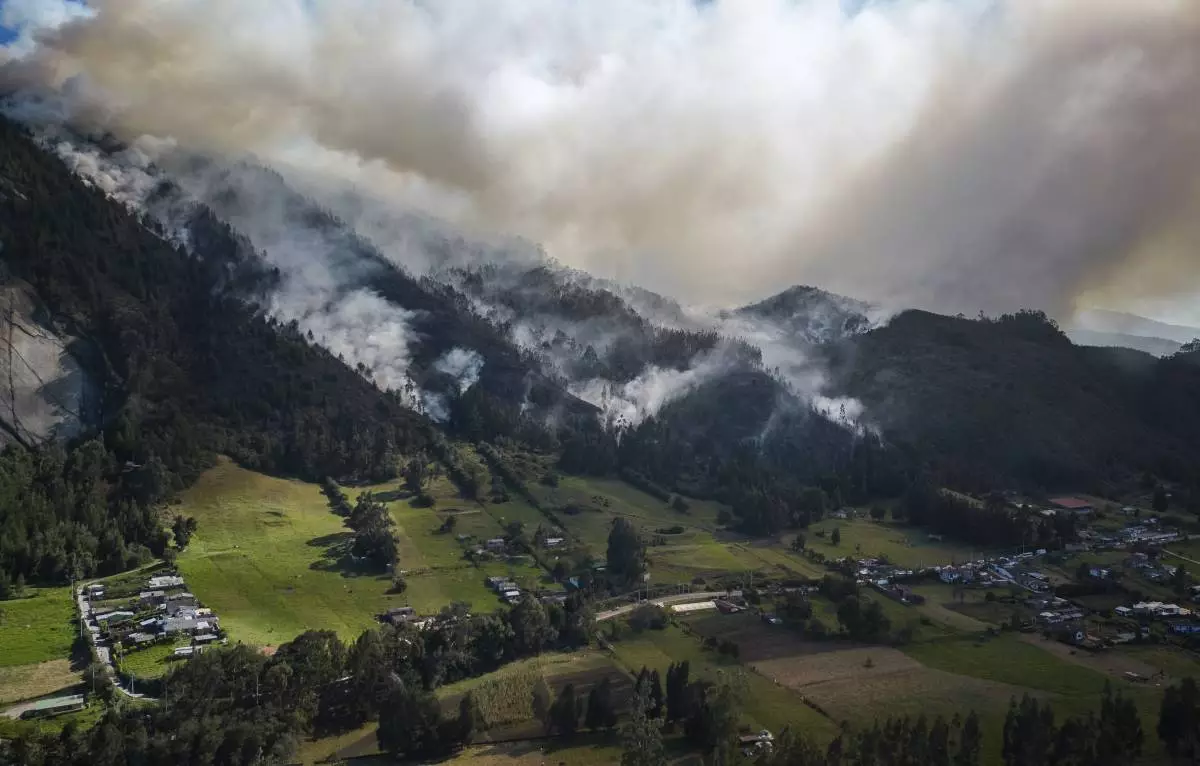
FILE - Smoke rises from a fire burning on the slopes of the mountains surrounding Nemocon, north of Bogota, Colombia, Jan. 23, 2024. (AP Photo/Ivan Valencia, File)
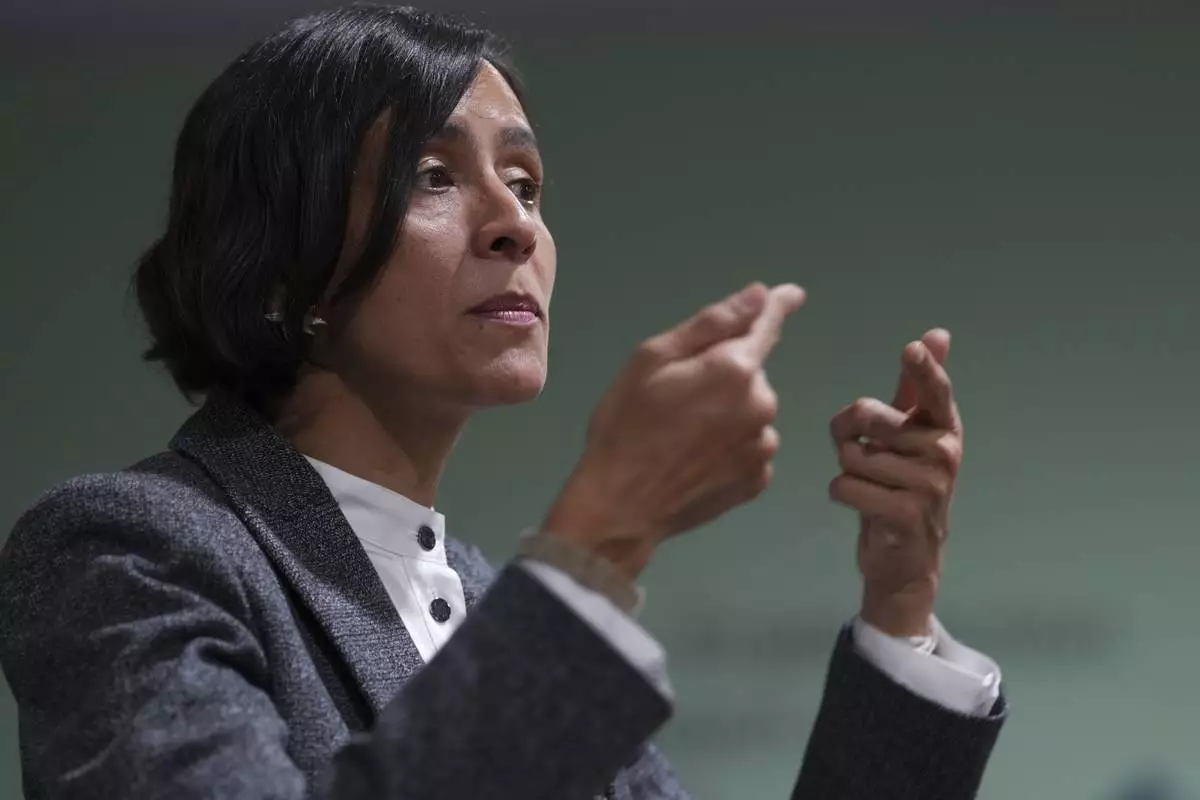
Susana Muhamad, environment minister of Colombia, speaks to The Associated press at the COP29 U.N. Climate Summit, Wednesday, Nov. 13, 2024, in Baku, Azerbaijan. (AP Photo/Peter Dejong)
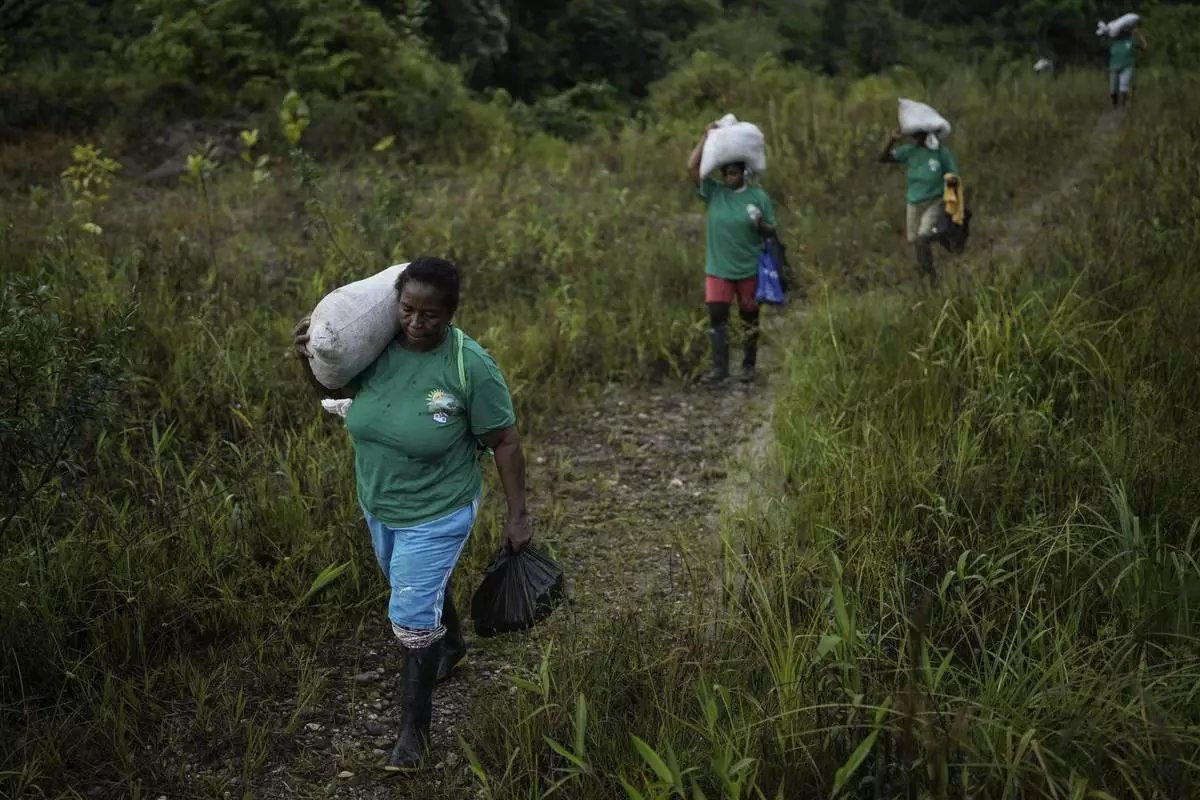
FILE - A group of women, part of Asociacion Nuestra Casa Comun, or Our Community House Association, carry fertilizer to reforest an area destroyed by illegal mining, near Paimado, Colombia, Sept. 24, 2024. (AP Photo/Ivan Valencia, File)
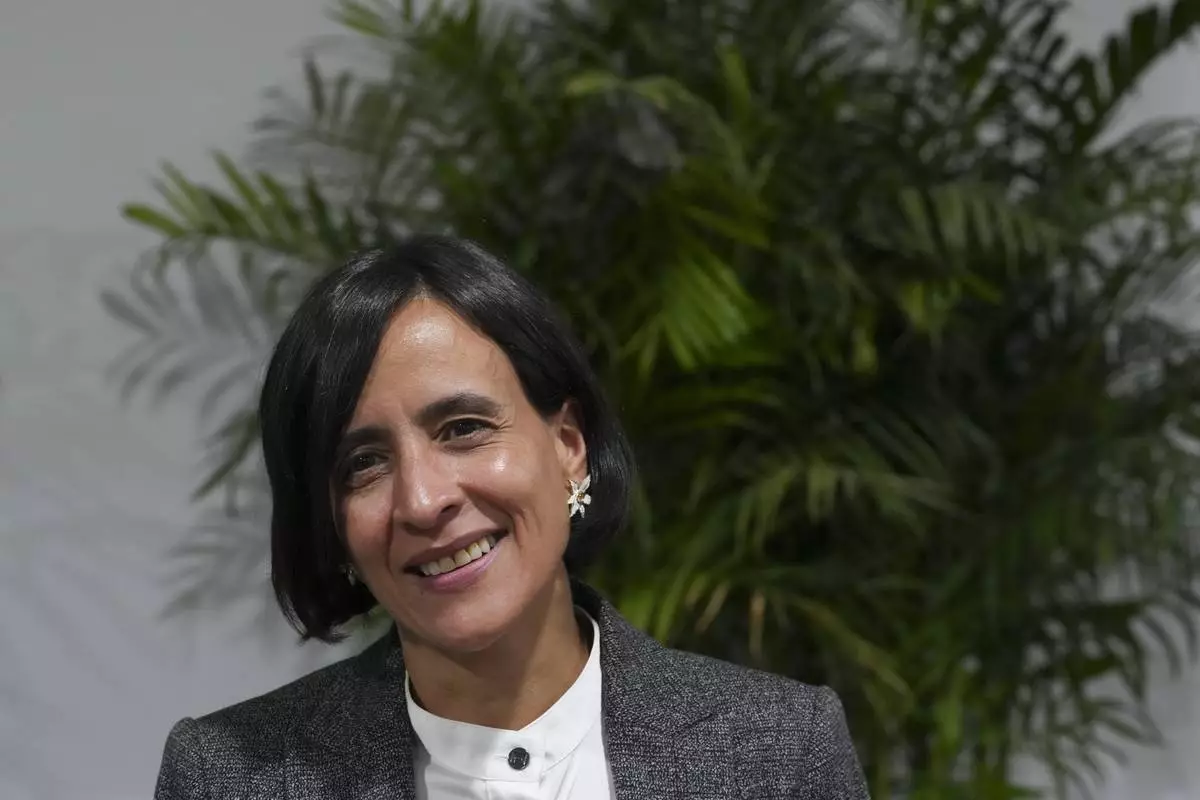
Susana Muhamad, environment minister of Colombia, speaks to The Associated press at the COP29 U.N. Climate Summit, Wednesday, Nov. 13, 2024, in Baku, Azerbaijan. (AP Photo/Peter Dejong)












